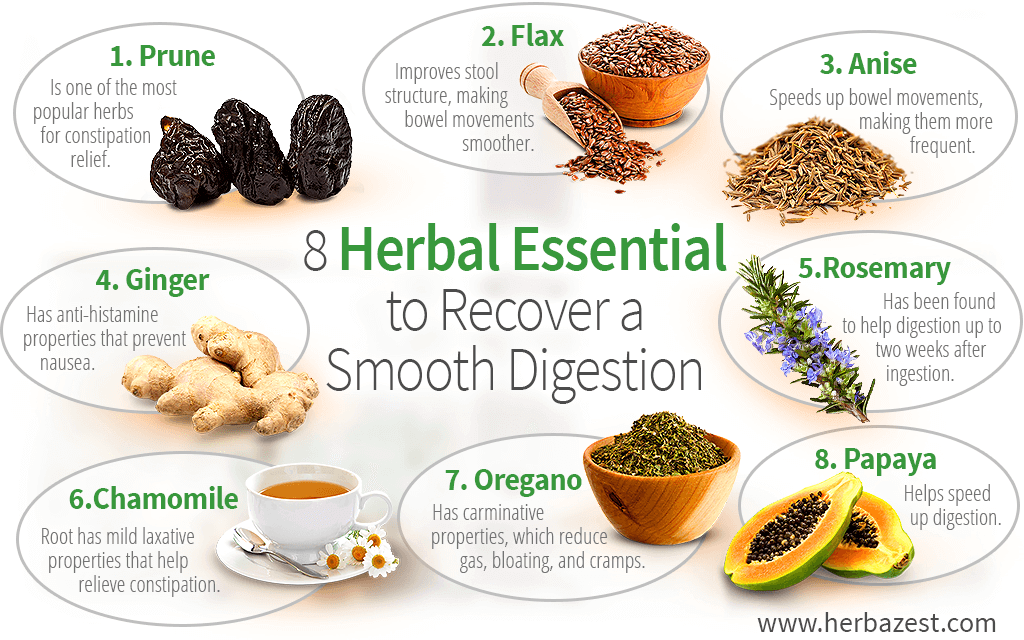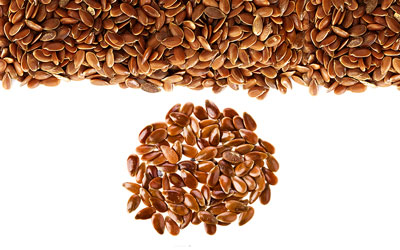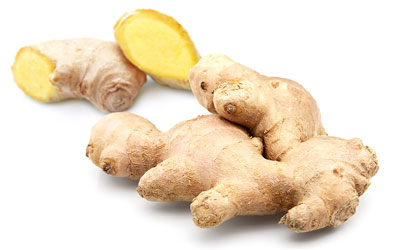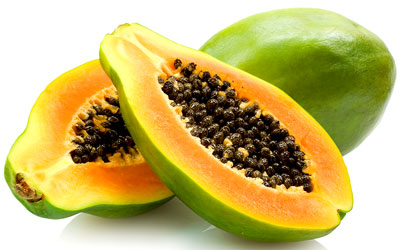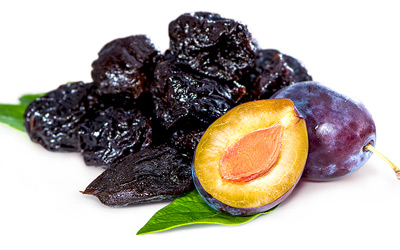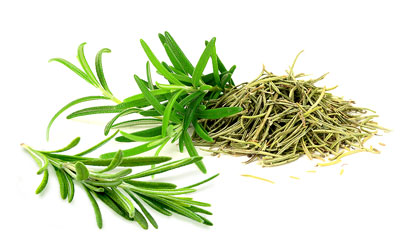Fiber is sometimes referred to as "Nature's Broom" because it helps clear out the digestive tract.
The regular passing of stools is essential for comfort as well as health. Experiencing less than three bowel movements a week or stools that are hard, dry, and difficult to pass is indicative of constipation. Although constipation is not dangerous, it is unpleasant and can cause uncomfortable bloating and abdominal pain. Luckily, it can usually be treated quickly. A combination of herbal remedies and minor adjustments to exercise routine and daily water intakes can do the trick and enable you to enjoy smooth digestion.
1. Prune (Prunus domestica)
The key to relieving digestive issues usually involves increasing fiber intake, both soluble and insoluble. Prunes are the ideal remedy for constipation because they combine a high amount of soluble fiber - 7.6 grams per cup - with sorbitol, a type of natural sugar that helps increase the amount of water in the stool.
2. Flax (Linum usitatissimum)
Flax has been historically used to treat digestion issues, thanks to its insoluble fiber1: one tablespoon provides 3 grams, alongside high amounts of mucilage. Both elements can improve stool structure and make bowel movements smoother. Flaxseed meal can be used to bake breads and desserts, while its oil can be taken as a supplement or added to salads.
3. Anise (Pimpinella anisum)
A 2010 study2 of the effects of anise in treating constipation found that after consuming the herb, the treatment group showed significant decreases in time it took to pass stools as well as substantial increases in the number of bowel movements, in comparison to the placebo group.
4. Ginger (Zingiber officinale)
Ginger has numerous medicinal properties, including treating problems in the gastrointestinal tract. The herb has soothing anti-inflammatory properties, which help relieve abdominal pain associated with constipation. Furthermore, ginger's anti-spasmodic and anti-nausea properties make it one of the best remedies for digestive problems.
5. Rosemary (Rosmarinus officinalis)
Rosemary has constipation-relieving abilities in an aromatherapy context3. Using rosemary essential oil for lower abdominal massages can help stimulate digestion for up to two weeks after the treatment.
6. Oregano (Origanum vulgare)
Oregano is a notable source of fiber, with two teaspoons providing 4% of the recommended daily intake. It helps to ease digestion by stimulating the release of stomach bile. This antispasmodic action aids in reducing gas, bloating, indigestion, and general abdominal pain that can result from digestive problems.
7. Chamomile (Matricaria recutita)
Chamomile root has laxative properties that can gently resolve constipation. What's more, the herb can be easily brewed into tea to maximize the effects of dietary fiber in the body. Drinking a lot of fluids, especially warm beverages, can be particularly useful for easing digestion problems.
8. Papaya (Carica papaya)
Papaya contains quantities of the digestive enzyme papain, which helps the body break down protein and, therefore, speed up digestion. One medium-sized papaya also provides almost 20% of the recommended daily fiber intake, providing even more support to your bowels.
Alongside these herbal remedies, it is advisable to exercise regularly to help treat and prevent constipation. Although medicinal laxatives are available to promote smooth digestion, it is best to consider these herbal solutions first, especially with the help of an experienced herbalist.
Sources
- Clinical Evidence, Constipation, haemorrhoids, and heartburn in pregnancy, 2010
- Georgetown University Medical Center, Oregano
- ISRN Pharmaceutics, Review of Pharmacological Properties and Chemical Constituents of Pimpinella anisum, 2012
- National Center for Complementary and Alternative Medicine, Flaxseed and flaxseed oil, 2012
- National Institute of Diabetes and Digestive & Kidney Diseases, What I need to know about constipation
- National Institutes of Health, Roman Chamomile
- University of Maryland Medical Center, Ginger
Footnotes
- BMC Complementary and Alternative Medicine. (2012). Laxative effects of partially defatted flaxseed meal on normal and experimental constipated mice. Retrieved March 15, 2021, from: https://pubmed.ncbi.nlm.nih.gov/22400899/
- BMC Complementary and Alternative Medicine. (2010). Randomized clinical trial of a phytotherapic compound containing Pimpinella anisum, Foeniculum vulgare, Sambucus nigra, and Cassia augustifolia for chronic constipation. Retrieved March 15, 2021, from: https://www.ncbi.nlm.nih.gov/pmc/articles/PMC2874511/
- Taehan Kanho Hakhoe Chi. (2005). Effect of aromatherapy massage for the relief of constipation relief in the elderly. Retrieved March 15, 2021, from: https://pubmed.ncbi.nlm.nih.gov/15778557/


